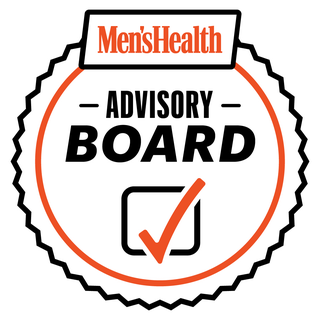My practice is packed with people suffering from frequent reflux symptoms in search of ways to feel better. But much of the “best advice” they’ve gathered on how to relieve this problem that affects up to nearly 28 percent of Americans involves severe dietary restrictions that not only put a dent in their lifestyles; they also don’t have a lot of strong evidence behind them.

While there are a myriad of medications on the market now to treat reflux—expenditures in the US for drugs such as proton pump inhibitors (PPIs) total $7 billion a year—many patients either don’t want to be dependent on medications or are worried about potential side effects.
It’s important to take care of reflux, also known as GERD or gastroesophageal reflux disease. Symptoms include heartburn, regurgitation, sour taste in the mouth, and/or chest discomfort. The pain and discomfort from GERD can adversely impact many aspects of your life, including your sleep and productivity at work. Chronic GERD is also a risk factor for the development of serious conditions such as Barrett’s esophagus (a precancerous change of the lining of the esophagus) and even esophageal cancer. But you may be surprised to discover what you do and don’t need to do to treat it.
A Classic Case of Reflux
For instance, Spencer, a 27-year old man who came to me with daily reflux symptoms, recalls a few episodes of heartburn when he was in college; mainly after long nights out with friends eating pizza and drinking beer. This hasn’t happened to him in years, but now he finds himself grabbing for TUMS and over-the-counter medications for heartburn in the morning. He has at times been woken from sleep with burning in his chest and throat. He has a busy job in the financial industry and can work late hours and finds himself at business dinners at least two nights a week which can be heavy and include alcohol. Other nights, he tries to hit the gym after work and often eats late, sometimes just before bed. He has heard about GERD and read a lot about how to curb his symptoms.
Most of the books and articles have daunting lists of diet and lifestyle modifications. He loves his Starbucks in the morning and cannot imagine abstaining from red sauce and wine. The dietary modifications make having a normal life seem impossible. He has intermittently taken over the counter PPIs such as Prilosec, but he hates feeling like an ‘old man’ dependent upon medication. Spencer wants to know—as do so many of my other patients—what does he really need to avoid to help with reflux? And what can he still keep eating?
What You Might Not Need to Give Up to Avoid Reflux
Several beverages and foods have been implicated in the exacerbation of GERD symptoms including coffee, carbonated beverages, alcohol, citrus fruits, tomato-based products, and foods that are fried or acidic. How strong is the evidence-based data on these dietary modifications? Truth be told, the data is sparse and conflicting at best. These foods and beverages may not be an issue:
Given the lack of convincing evidence that avoiding specific food and beverage triggers will curb reflux symptoms, putting oneself on a strict restrictive diet may not be necessary. As always, it is best to be in touch with your body. If there are specific foods that you believe give you reflux, by all means, avoid them. But if you have not identified any triggers, it may not be necessary to feel guilty or obligated to be on a restricted diet.
What You Should Give Up to Avoid Reflux
If giving up specific foods is not the answer, is there anything definitive that you should give up to prevent GERD? Yes, when it comes to these:
As for Spencer, he realized that the late-night eating was the real culprit behind his reflux. Making a concerted effort to avoid going to bed on a full stomach has made all the difference.
Source: Read Full Article